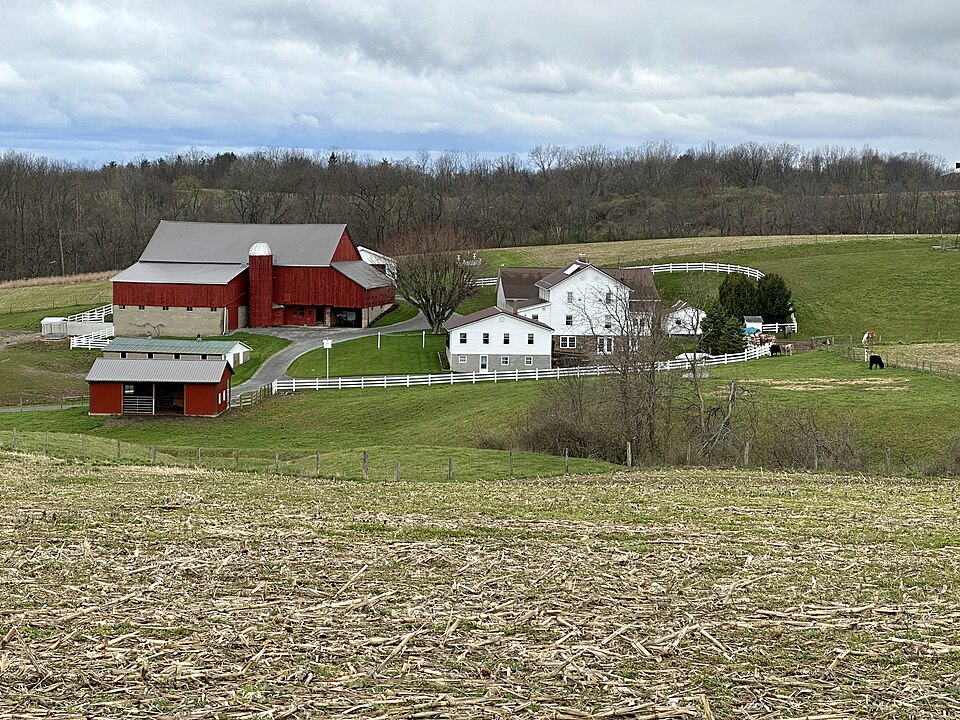Article summary
- 1. Don’t shout at the crops.
- 2. Don’t blame the crops for not growing fast enough.
- 3. Don’t uproot crops before they’ve had the chance to grow and mature.
- 4. Choose the best plants for the soil.
- 5. Irrigate and fertilize.
- 6. Remove weeds.
- 7. There are good seasons and bad seasons – you can only prepare for those.
- Farmer’s Advice & Atomic’s Core Values
Growing up I worked on a farm in rural North Carolina during my breaks from school. The work was hard, and the summers were hot! Little did I realize then that the advice and lessons learned on the farm would have such a direct influence on leadership and team dynamics in the corporate world.
Farmers must exhibit patience, dedication, and a long-term perspective. These attributes are also ones relevant to building software. As a Delivery Lead at Atomic Object, a custom software development company, I serve at the intersection between our clients and our internal teams comprised of developers and designers who build the software. I recently came across an article which was based on a farming metaphor that struck a chord with me as it relates to being an effective leader and teammate. Here are seven leadership lessons from farmers.
1. Don’t shout at the crops.
Challenges and difficulties will arise during a project. Approaching them in a calm and measured manner leads to better outcomes. Getting upset does not solve problems. It is essential to communicate clearly, listen to concerns, and work collaboratively to find optimal resolution.
2. Don’t blame the crops for not growing fast enough.
A farmer cannot control the weather or external factors that may affect the growth of their crops. Teams are ultimately accountable for the success or failure of a project. An effective leader must recognize that when external challenges or setbacks occur then a problem-solving mindset is required. Placing blame is counterproductive. It may require searching for additional resources, training, support, or reevaluating goals and strategies.
3. Don’t uproot crops before they’ve had the chance to grow and mature.
Team members need time and support to develop and grow in their roles. Just as a farmer must be patient and allow their crops to mature before harvest, a leader must be patient when expecting results, especially with a new team onboarding to a project. Creating a positive and supportive work environment from the outset allows team members to learn, grow, and thrive. Rushing and constantly pushing teammates can lead to burnout, low morale, and poor outcomes. Yes, there is accountability to deliver results and meet deadlines. But one must strike a balance between the value of short-term gains (or losses) and long-term results.
4. Choose the best plants for the soil.
Like a farmer must choose the right plants for specific conditions of their soil, a leader should place value in assembling a team with complementary strengths and skill sets to achieve the business objectives. It’s a curation process which requires understanding the needs, expertise, capacity, culture and work environment both within the consultancy organization and the client. Continuously evaluating performance and team dynamics in a proactive manner can help avoid conflicts resulting in a reactive response. Just as a farmer may need to rotate their crops or add fertilizers to improve the soil, a team may need to introduce changes or different approaches to achieve results.
5. Irrigate and fertilize.
A farmer must ensure crops are watered and have the nutrients needed to grow and produce. High functioning teams are much the same requiring support and resources to perform at their best. This could come in the form of having access to new technologies, collaborating on project plans, time to research different approaches to solving complex tasks, and emphasizing a teach-and-learn mindset where teammates are encouraged to share their expertise while also seeking input from others.
6. Remove weeds.
A farmer must remove weeds from their fields to allow crops to thrive. Likewise, it is important to proactively address problems or challenges that hinder team success. Optimal performance is dependent upon open, respectful, and direct communication. It is essential to provide clarity on roles and purpose. Poor communication, ambiguity, and allowing problems to go unaddressed often result in higher frustration, lower morale, and poorer results.
7. There are good seasons and bad seasons – you can only prepare for those.
The term “agile” holds different meanings in the software development arena. In this context, it means being adaptable and resilient when facing change. Just as a farmer must adapt to the changing seasons and weather patterns, change is inevitable when developing software. Clients may need to pivot and redefine priorities, software features often require iterative revisions or improvements, and adjustments to the scope of deliverables is common. Leaders who proactively prepare for potential challenges or disruptions are better equipped to help their teams deal with change and succeed in good seasons and bad.
Farmer’s Advice & Atomic’s Core Values
At Atomic, our core values are Think Long Term, Own It, Share the Pain, Teach and Learn, Act Transparently, and Give a Sh*t. The advice and lessons learned from farmers happen to align well with these corporate values. They allow us to deploy adaptive high-functioning teams to help us help clients achieve mutually beneficial business objectives. Just as when I was on the farm, there is great satisfaction and a sense of accomplishment when the crop is well nurtured, resulting in a productive harvest.

